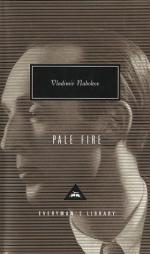|
This section contains 9,248 words (approx. 31 pages at 300 words per page) |

|
SOURCE: “Queer, Queer Vladimir,” in American Imago, Vol. 53, No. 4, Winter, 1996, pp. 281-306.
In the following essay, Bruhm analyzes the function of Charles Kinbote's homosexuality in Pale Fire.
When the BBC asked Vladimir Nabokov in 1968 what authors had influenced him most, he responded, “I'd much prefer to speak of the modern books I hate on first sight: the earnest case histories of minority groups, the sorrows of homosexuals, the anti-American Sovietnam sermon …” (Nabokov 1973, 116). With an uncharacteristic flourish of generalizing, Nabokov groups together what had by then become a familiar coupling of Cold-War villains: minorities, homosexuals, and communists. But what troubles Nabokov most is not the existence of various political interest groups—he makes much in Strong Opinions and Speak, Memory of his lack of interest in matters political—but that such interests are cast into fictive discourse: “case histories,” “sorrows” and “sermons” employ narratives that indulge and promote their...
|
This section contains 9,248 words (approx. 31 pages at 300 words per page) |

|


